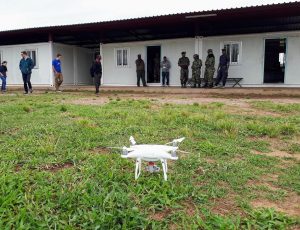I love a good holiday, doesn’t everyone? Traveling is the drug of choice for my wife and I, and between our work and pleasure trips we sure do get around. Last year I went to 10 different countries, while my wife went to 9.
Half of my trips, and two thirds of my wife’s were for work, but if you’re thinking that means we didn’t have to skimp on costs you’d be wrong.
Unlike my suit wearing friends who seem to have bottomless expense accounts, I get given a daily sum of money depending on the city I’m going to. If I spend more than that it comes out of my own pocket, but if I manage to live on just a portion, the rest stays in my bank account, and I get to add it to my regular investments at month end.
I do pretty well too, I’ve never used more than half my allowance, and thanks to all the travel hacking I try to do I often spend less than 25%.
For private trips travel hacking is a must. We always aim to maximize enjoyment for the minimum costs. We don’t hold back on experiences, for example we happily paid R1600 each to climb the Villarica Volcano, but wouldn’t dream of spending that amount on a hotel room.
Sharing is caring, so here’s a great big list of travel hacks we use regularly.
Local travel hacks
What’s the cheapest way to get a family of four from Gauteng to Durbs?
Clearly it’s not flying, unless you have a pile of voyager miles. You might think that loading the family into your car and hitting the N3 would be the answer, but with even a cheap car costing R4/km that isn’t so cheap after all.
One cheap way is to use the Shosholoza Meyl. Yes South Africa actually has a usable train system that goes to Durban, Cape Town, East London and PE. It’s perfectly safe, relatively clean, and comes with a cute little cabin with rather comfy beds. Just don’t be in too much of a rush as it never arrives on time. The round trip to Durban in a sleeper cabin costs just R660/person.
If you’re looking for something a little more independent, use someone else’s car. It’s possible to rent a car for R180/day which includes 200km of driving per day. Rent it for your week long holiday and it’ll get you to the coast, give you a few hundred km to use there, and get you back again for just R1260 plus fuel and tolls. Why add all that extra mileage to your own car when you can let someone else pay the depreciation and wear and tear bill.
Accommodation hacks
Always compare. Airbnb has made a huge difference to the travel industry, we use them more often than not, but don’t assume they’ll always be the cheapest. Once you have an idea on what’s available there compare it with Hotels.com and Booking.com. It’s surprised me how often I find a deal better than Airbnb. If you do find a better deal at a hotel or guest house, google it. Sometimes a different provider or going direct will save you even more.
Another thing to remember is that overnight planes, trains and buses also mean you get to skip a nights accommodation. Save that money and spend it on experiences.
At resorts you should know that half board and full board options are a complete waste, unless you’re an alcoholic. But if that’s the case you won’t remember anything anyway, so you might as well stay home.
Flight hacks
My personal favourite flight comparison app is Sky Scanner. I also use Google Flights, and then try to fiddle the days to get the absolute best deal. If I’m interested in going somewhere I’ll also get quite familiar with the prices so I know when a deal is okay and when it’s absolutely great. This technique helped us get return flights to Lisbon for just R3950! It was such a steal that we booked more than 6 months in advance.
Getting back to the Voyager miles, here’s another useful hack. Don’t use them on SAA, as you’ll still need to pay the airport taxes which can be more than a budget airline ticket. Instead spend your SAA miles on Mango and you’ll get to fly without paying a cent.
When flight shopping be aware that low cost carriers might not include luggage and you may have to pay extra for that. If that’s the case use a big carry on bag. My wife and I each have 46 litre Osprey Porter backpacks. They are airline legal and carry more than enough for a week long trip. For anything longer we simply do laundry. If you followed the tips above and ended up in an Airbnb you’ll almost certainly find a washing machine inside.
Also make sure you don’t add too much to the flight bill by overpaying to get to the airport. If you’re a big group you should know that the Gautrain is far more expensive than an Uber, but if you’re alone it’s absolutely the way to go. That cheap early morning flight from Heathrow might mean you can’t use the tube and need to cough up a whole lot for a taxi service.
Airport water is an unnecessary purchase. Sure, everyone knows you can’t take water through the security checkpoint, but you can take an empty bottle with you. Fill it up at the water fountains or bathrooms instead of paying the airport extortion prices.
Flight unhacks
Your probably not going to get a better deal at a travel agency. As with investments if there’s a middle man to pay, you’re going to be the one paying it. Even though I have a family member in the industry, I’ve never been able to get a better deal than I could find online.
Package deals are usually also a bad idea. They can claim to use group buying power to get better deals, but this only pays off if you’re someone who is used to paying hotel pricing. You can save a lot by shopping around on your flight and using the accommodation hack above, plus nobody tells you where you have to stay and where you have to eat.
Food hacks
It might sound stupid to even have to bother saying this, but the restaurant opposite the big tourist attraction is more of a tourist trap than an eating venue. Instead head a few streets away and go to where the locals eat. It’s also useful to know specific customs, for example in Italy the prices of your coffee and sandwich doubles or even triples if you sit rather than have it standing at the bar like the locals do.
I have to thank a forum member Orca for this one: In Portugal they bring you a little basket of bread and possibly some olives when you take a seat. We’re used to getting complimentary bread when we eat out at some restaurants, but if you don’t say Nao Obrigado in Portugal you’ll find a nice little charge added to your dining bill.
But why eat at a restaurant at all? If you want to keep costs low head to the supermarket. All those tasty local treats are available at a fraction of the eating out price. What would you rather do, have an expensive lunch in a crowded noisy bistro or have a great lunch picnic in the Circus Maximus for a third of the price.
I’ve also eaten pizza on the Spanish Steps in Rome, picnics along the waterfront promenade in Lisbon, on countless beaches, public parks, under the Eiffel tower and even on the edge of a canal in Amsterdam’s red light district, a very entertaining picnic that was.
For an in transit food hack I like to start my trip with biltong and/or dry wors, nuts and cheese. Why? Because I love biltong, nuts and cheese, and it’s far cheaper than going to a take away spot in Dubai airport.
Transport hacks
I hate taxis. Even when they’re not overpriced, they’re still often dirty, unsafe, and generally driven by someone who should have retired his license years ago, or by a scam artist or both. Instead if you need to take private transport make use of Uber, but check that the app is set for the cheaper Uber X or Uber green rather than Uber black.
If you’re traveling in Europe, personal transport is really not necessary. There are always public transport options available for a really good price. In Paris they have so many Metro stations that you’re never more than a 5 minute walk from one of them. It’s also worth checking if they have a travel as much as you like weekly ticket, many cities do.
Just be aware, all trains are not equal. To get from the airport to Rome for example, you can either use the Leonardo express or spend half the price on the regular commuter train. I only made that mistake once.
Money hacks
One bank to rule them all? I can’t stand paying fees to exchange money. I’ve opened a US bank account and a Euro bank account to try and avoid them, but late last year I discovered an even better deal.
Capitec Bank. Yes the bank that you think is mostly for low income earners is also the best bank for frequent travelers, and in my opinion the best bank in SA. I’ve already told you how I use it in combination with Virgin Money so that I get paid R1800 a year for banking, but now I’ve found another reason for sticking with them.
With every other local bank account I’ve had, there’s been a spread of 2.75% on foreign currency transactions. Even my US bank account charges a 1% spread. My Euro account doesn’t, but it costs me at least 0.8% to get money into that account.
Guess how much Capitec charges? Nothing at all. It’s listed on their website that there are no foreign currency fees for swipes but until I tested this myself I just didn’t believe it. Even if you bank with someone else, open a Capitec account if you’re traveling. It’ll cost you just R6.00 a month and you’ll save a fortune when outside SA.
For cash you’re going to want to avoid forex bureaus like the plague. They have a nasty spread and outrageous fees. Instead pull out that Capitec card again. At R50 a withdrawal it’s not cheap, but it’s far cheaper than the alternatives.
Try to draw once for your whole trip, and if you see you have too much cash use it instead of swiping later on. Another tip which sometimes works is to see if people you know have some leftover forex from a previous trip. If you’re able to trade with them at the spot rate you both end up winning. Edit: Apparently it’s illegal in SA to change currency with anyone other than an “authorised dealer”. I hope my brother and I don’t get arrested over that leftover 20 pound note I bought from him.
But the best deal is to try for a cash free holiday, I’ve done it a number of times, swiping my card for absolutely everything.
Another tip is to find out about the tipping culture where you’re going. The 10% rule doesn’t work everywhere. In America you’re going to have to tip much more, but in many countries you tip much less. Take a look at http://www.tippingaroundtheworld.com/ to see what’s expected where you’re going.
In Italy for example you aren’t expected to tip, the service charge is built into the price. In Hungary they might include it on the bill, but if not you can add 10% but never leave it on the table as that’s considered rude, you have to give it to the waiter. In Austria you’re also not expected to tip, but you can round up to the nearest 5 Euro.
Activity hacks
Find out about specials. For instance did you know that locals get to go up table mountain for half price after 6pm as long as they book online. It’s also the best time to go up, and sunset on top is amazing!
In Europe the Museums and galleries often have free days every week. In some cities, like London most of the galleries and museums are always free. Don’t get sucked in by the apparently great deals on city passes. They’re only worth it if you go to absolutely every attraction, but that also means you have to rush everything. So not worth it. I’m also not a fan of the big red busses. If you ask me there are cheaper ways of inhaling diesel and getting sun-burnt.
Other useful hacks
Get a local SIM card. In Malawi a gig of data costs just R50 and lasts a week. In Portugal you can get a data sim with 15GB that lasts 15 days for just 15 Euro. This will mean you have data available to double check on deal, book online to skip queues, and call an Uber instead of using a taxi.
And find out about the vat refunds, even if you’re not sure you want to buy anything. On my last trip the airline managed to destroy my bicycle helmet. I bought a fantastic new one, but never knew the invoice needed to have my name and passport number on it to get a VAT refund. With VAT being 23% that was a 20 euro mistake.
Do you have any useful travel hacks? Let us know in the comments below.






